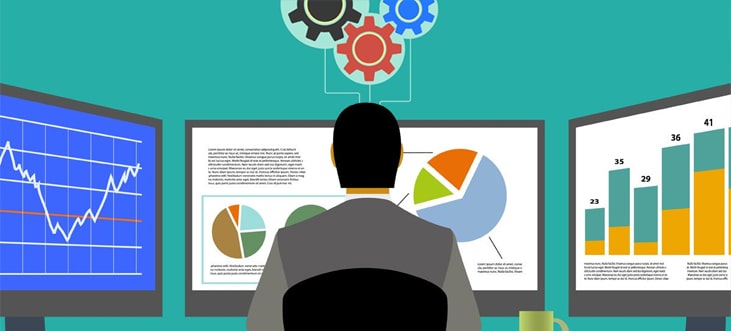The term Management information system (MIS), refers to a computer-based methodology that equips decision makers in an organization with the tools to organize, evaluate and efficiently manage departments. The process chiefly involves in storing of data and generating reports that will throw light on the business key points to make right decisions. The MIS system may also include software that supports in decision making. The software keeps a complete record of the past and current data in the required format and presents it for analysis whenever it is needed.
Besides database maintenance and decision making, the software comes handy in keeping a complete record of the hardware resources, project management applications, people management, and decision support systems. On the whole, it serves as the backbone of an organization guaranteeing smooth and efficient functioning.

In the information age, Management Information Systems incorporates tools that enable operations, intelligence, IT and overall processes to run smoothly. It offers broader services, as it includes multiple specialized systems into one. Here are some of the major system types:
#Executive Information System (EIS):The EIS enables top management to make decisions that influence the whole organization. Executives look for in-depth data to understand the position well and EIS meets the need.
#Marketing Information System (MIS):As the name suggests MIS is used by the Marketing teams. It brings to light the effectiveness of past and current campaigns. This information helps the marketers to make use of the lessons learned to plan future campaigns.
#Business Intelligence System (BIS):The collected data and information is analyzed to deliver the key points to take right business decisions. The BIS is used by the operations team. It is similar to EIS and helps the lower-level managers and executives.
#Customer Relationship Management System (CRM):CRM or Customer Relationship Management System stores key information about customers. The details comprise previous purchases, contact information, and sales opportunities. Many departments access CRM and they are: marketing, customer service, business development, and sales.
#Sales Force Automation System (SFA):The Sales Force Automation System is a division of a CRM system that integrates and automates many tasks of a sales team. This includes contact management, lead tracking and generation, and order management.
#Transaction Processing System (TPS):The Transaction Processing System could be a POS which completes a sale and manages the related information. The key persons in an organization can track the trends by going through this reports. It will present the usage trends and track sales over time.
#Knowledge Management System (KMS):The Knowledge Management System is used by the customer service department to address customer related queries and issues.
#Financial Accounting System (FAS):From the name (Financial Accounting System), it is easy to make out that the accounting and finance use the system. The accounts payable (AP) and accounts receivable (AR) get benefitted by Financial Accounting System.
#Human Resource Management System (HRMS):The HR department can quickly track employee performance records and payroll data with the help of Human Resource Management System. The HRMS helps them to maintain a complete record of the employee cycle in the organisation.
#Supply Chain Management System (SCM):The SCM helps manufacturing companies to track the flow of materials, resources, and services. This includes the purchase stage to the final products shipping out.
The management information system helps in getting useful reports that will enable businesses to stay competing and make well-planned business decisions. But, the organization is in need of an effortless way to distribute the crucial information with team members and business executives. Comodo offers best-in-class CRM tool to manage Salesforce Automation, Customer Support & Services, Marketing Automation, Inventory Management, Calendar & Activity Management and Telephony, email & SMS integration. By incorporating Comodo CRM you'll improve the overall reporting and maximize the

IT Through Managed Service Providers
Find the Potential Managed IT Services for your Organization
Reasons Why Information Systems Are Important for Business Today
Add new comment